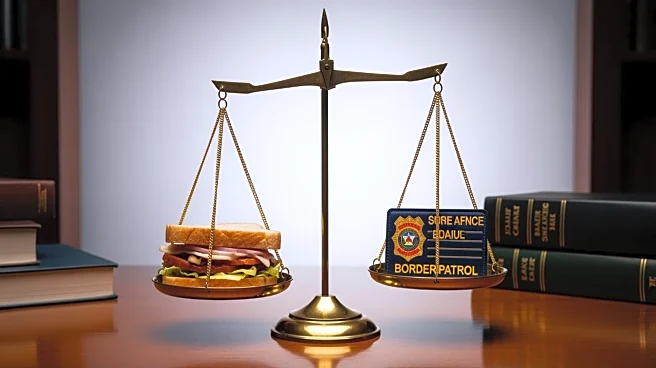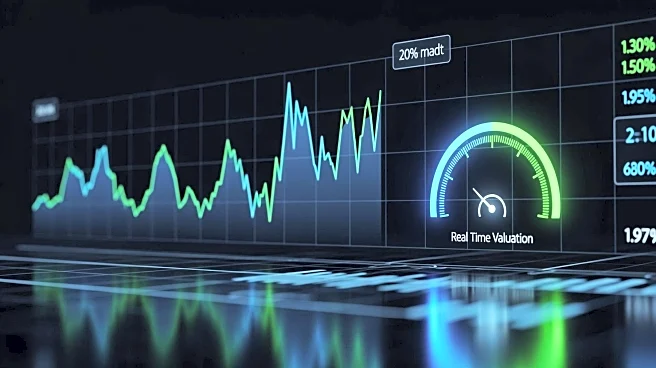What's Happening?
Sean Dunn, a Department of Justice paralegal, is facing a misdemeanor charge after throwing a Subway sandwich at a Customs and Border Patrol agent during a protest in Washington, D.C. The incident, which
occurred during a martial law test run by the Trump administration, led to Dunn losing his job but avoiding indictment initially. The case has garnered attention due to its unusual nature, with the trial beginning shortly after National Sandwich Day. The prosecution is attempting to portray the sandwich as a dangerous object, while the defense highlights the absurdity of the charge.
Why It's Important?
The case against Dunn reflects broader tensions between government authorities and public dissent during politically charged events. The prosecution's efforts to frame the sandwich incident as a serious offense raise questions about the use of legal resources and the prioritization of cases. The trial may serve as a commentary on the government's handling of protests and the balance between maintaining order and respecting civil liberties. The outcome could influence public perceptions of the justice system's role in addressing minor offenses amid larger political controversies.
What's Next?
The trial will continue with testimony from the involved parties, including the Border Patrol agent who was hit by the sandwich. The defense is expected to challenge the seriousness of the charge and the prosecution's portrayal of the incident. The case may prompt discussions about the appropriate use of legal resources and the implications of prosecuting minor offenses in politically charged contexts. The verdict could impact future legal approaches to similar incidents.
Beyond the Headlines
The sandwich incident highlights the intersection of legal proceedings and public protest, raising questions about the government's response to dissent. The case may prompt debates about the role of humor and absurdity in legal contexts, as well as the ethical considerations of prosecuting minor offenses. The situation underscores the challenges of balancing legal accountability with the protection of civil liberties during politically sensitive events.









